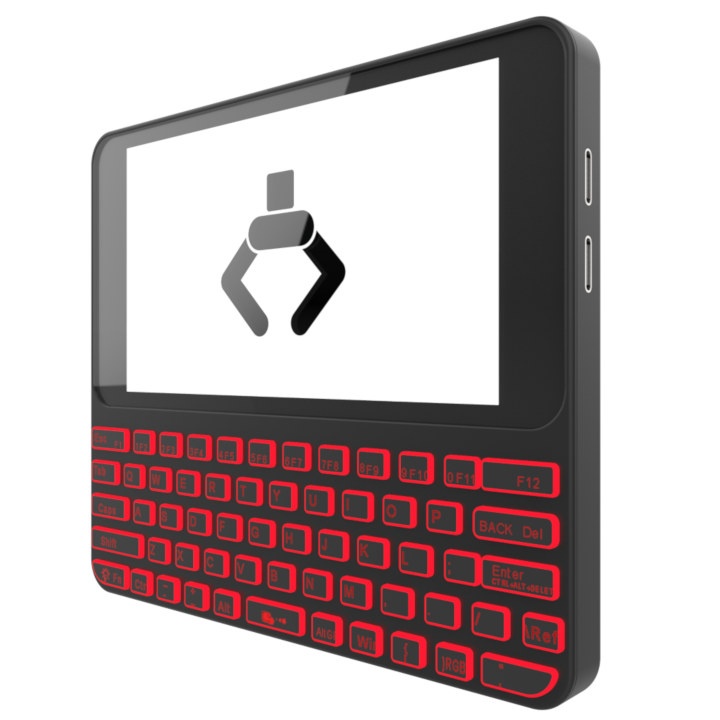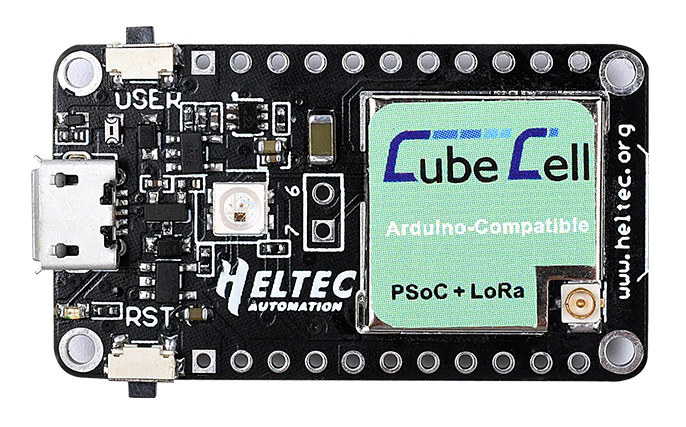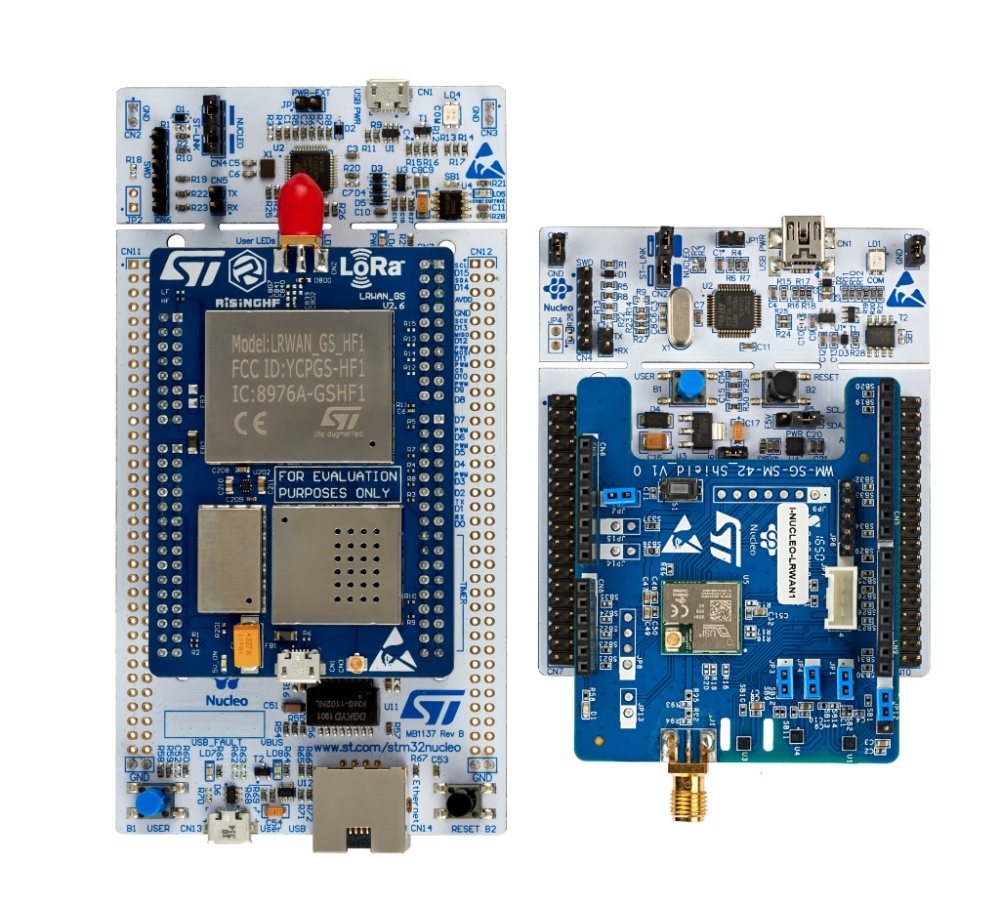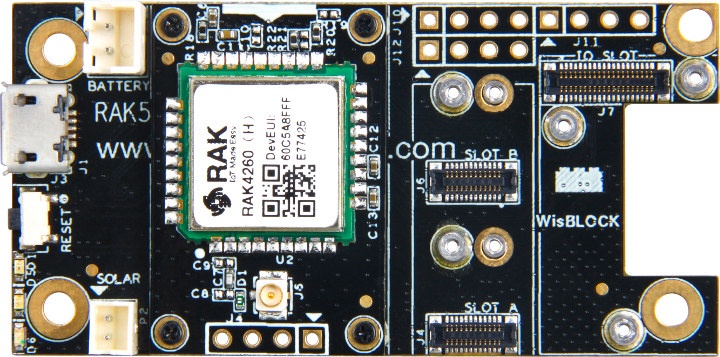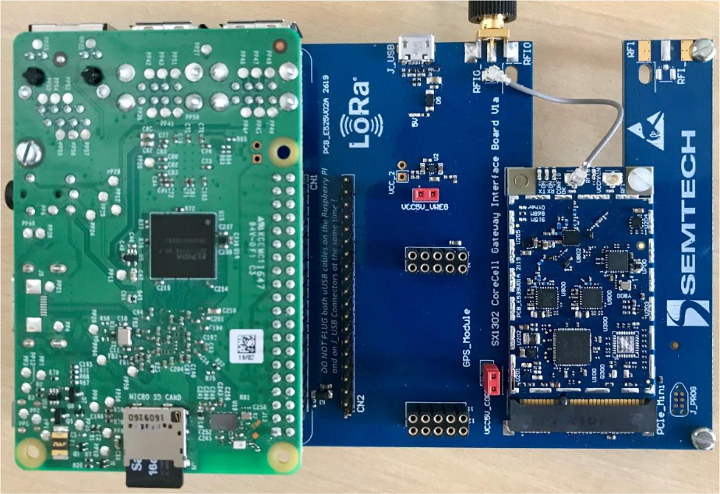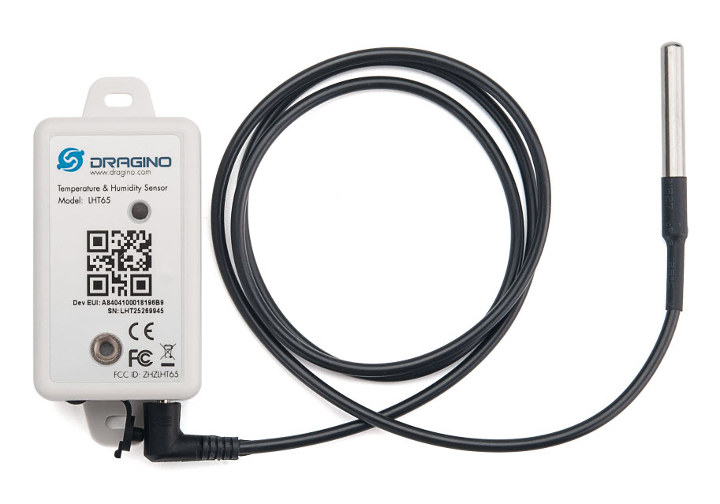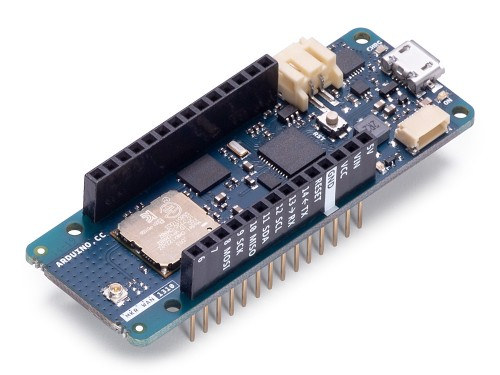PocketCHIP was a Linux handheld computer powered by Allwinner R8/GR8 Cortex-A8 based CHIP board. The battery-powered device came with a small resistive display, 512 MB RAM, 4GB NAND flash, and a keyboard allowing to run Debian with PICO8 GUI so you could play retro games, access the terminal and so on. But since Next Thing Co folded last year the products are not available anymore. Since the designs were open source, Source Parts first tried to resurrect the board via their slightly modified Popcorn Computer but the Kickstarter campaign was unsuccessful. The company is now attempting to bring back PocketCHIP (sort of) with Pocket Popcorn Computer (abbreviated as Pocket P.C.) with a new design, and a much more powerful quad-core Cortex-A53 processor and overall better specs. Pocket Popcorn Computer specifications: SoC – Allwinner A64 quad-core Arm Cortex-A53 CPU with Arm Mali-400MP2 GPU System Memory – 2GB DDR3 RAM Storage – […]
$10 HelTec CubeCell LoRa Board Features Cypress PSoC 4 MCU
HelTec CubeCell is an Arduino-compatible LoRa module based on Semtech SX1262 transceiver and a Cypress PSoC 4 mixed-signal MCU. The module itself currently sells for $6.90, but you’ll also find a more convenient board for $9.90, as well as a $13.90 IP67 “capsule” housing a battery, an antenna, and a sensor board. All three are available on the same Aliexpress page. CubeCell LoRa board specifications: SoC – ASR Microelectronics ASR6501 with MCU – Cypress PSoC 4 Arm Cortex-M0+ @ 48 MHz with 128KB flash, 16KB SRAM LoRa Transceiver – Semtech SX1262 LoRa Connectivity Bands – EU433, CN470-510, EU863-870, US920-928 Output Power – 21 dB +/- 1 dB max LoRaWAN standard protocol support USB – 1x Micro USB port for power and programming Expansion – 2x 11-pin headers with GPIO’s, UART, I2C, SPI, ADC, Reset, and VIN, 5V, 3.3V, and GND power signals Misc – User and boot buttons, RGB LED […]
STMicroelectronics Introduces Affordable LoRa Development Packs For All User Types
STMicroelectronics has recently announced the launch of a new set of LoRa Development packs, which are not only affordable, but they are aiming to a large pool of users from big organizations, small companies, hackers, engineers, students, and hobbyists. The ready-to-use development packs are aimed for applications bent on leveraging LoRa ’s long-range, low-power wireless IoT connectivity for tracking, positioning, metering, and many related applications. STMicroelectronics is releasing the P-NUCLEO-LRWAN2 pack and P-NUCLEO-LRWAN3 pack. Both packs provide a complete LoRaWAN development kit, and they include gateways, end-nodes, and ST tools, which are all based on the STM32 Nucleo evaluation boards. The LoRa gateway on both packs is based on the STM32 Nucleo-144 development board, NUCLEO-F746ZG. The STM32 Nucleo-144 development board with STM32F746ZG MCU supports Arduino, ST Zio, and Morpho connectivity. The Gateway header pins are exposed out to facilitate more development, and they support interfacing with LoRaWAN network-server providers LORIOT, Actility, myDevices Cayenne for LoRa […]
RAKWireless RAK4260 is a Tiny LoRAWAN Module based on Microchip SAMR34 LoRa SiP
Rakwireless has just announced a new module part of their LPWAN family: RAK4260 LoRaWAN module based on Microchip ATSAMR34J18B LoRa SiP and at just 15x15x1.2 mm, one of the smallest LoRaWAN modules in the market. The new module is cheaper than the company’s earlier RAK811 module and consumes less power at just 790 nA in sleep mode. The company also provides a RAK4260 evaluation board with easy access to GPIOs and serial interfaces. RAK4260 LoRaWAN Module Specifications: SiP – Microchip ATSAMR34J18 SiP with SAM L21 Arm Cortex M0+ MCU @ 48 MHz, up to 40 KB RAM, up to 256 KB Flash LoRa Connectivity Frequency Range – 862 to 1020 MHz High level of accuracy and stability (32MHz TXCO) Max Tx Power: 20dBm; Max Sensitivity: -148dBm; Rx Current: 17mA (typical) Compliant with LoRaWan 1.0.2 Expansion – Castellated holes with I2C, SPI, ADC, UART, GPIOs Power Consumption Low RX current of […]
Semtech SX1302 LoRa Transceiver to Deliver Cheaper, More Efficient Gateways
After our interview with Rak Wireless CEO, we received a comment inquiring about the availability of SX1302 gateways. Semtech so far had two LoRa transceivers for gateways namely SX1301 and SX1308, but I had never heard about a third one. Semtech SX1302 is brand new, the latest generation of baseband LoRa chip for gateways that is said to reduce current consumption in order to simplify the thermal design of gateways, as well as the BoM (bill of materials) costs), while being capable of handling a higher amount of traffic. Semtech SX1302 LoRa Transceiver Key features: Up to -141 dBm sensitivity with SX1250 Tx/Rx front-end 125 kHz LoRa reception with: 8 x 8 channels LoRa packet detectors 8 x SF5-SF12 LoRa demodulators 8 x SF5-SF10 LoRa demodulators 125 /250 / 500 kHz LoRa demodulator (G)FSK demodulator Direct interface to Semtech transceivers SX1255, SX1257 and SX1250 SPI host interface Single 32 MHz […]
Dragino LHT65 is a $30 LoRaWAN Temperature & Humidity Sensor
If you’d like to monitor temperature and/or humidity in remote locations, one way is to get a LoRaWAN gateway, and setup a few LoRaWAN nodes connected to your own temperature & humidity sensors, and add a battery and enclosure. But if you’d like to save some time, and get a turnkey solution, Dragino LHT65 LoRaWAN temperature & humidity sensor may be an option. The sensor comes with an internal SHT20 sensor, and as well as an external DS18B20 waterproof temperature sensor. Features & specifications: LoRa Connectivity Frequency Bands – CN470, EU433, KR920, US915, EU868, AS923, AU915 LoRaWAN Class A protocol Sensors Sensirion SHT20 (internal) Temperature – Range: -40 ~ 125 °C; 0.1°C resoultion; +/-0.3°C accuracy; long term drift < 0.02 °C/yr Relative Humidity – Range: 0 to 100%; resolution: 0.04%; accuracy +/-0.3%; DS18B20 (external) – Range: -55 °C~ 125 °C; resolution: 0.0625 °C; +/-0.5°C accuracy from -10°C to +85°C; +/-2°C […]
LPWAN Market Update – An Interview with RAK Wireless CEO
CNX Software interviews Ken Yu, RAK Wireless’ founder & CEO, to learn more about the company and the current & future state of the LPWAN (Low Power WAN) market especially with regards to NB-IoT and LoRaWAN. CNXSoft: We’ve already covered several products from RAK Wireless on CNX Software, starting with WiFi IoT boards several years ago, and more recently LPWAN products based on NB-IoT or LoRa. But for readers who may not be familiar with RAK Wireless yet, could you provide a short description of what the company does? Ken Yu: RAKwireless was founded in 2014. The core founder team consists of professionals coming from established leaders in the Networking industry as Qualcomm, H3C, etc. Because our engineers have more than 10 years of experience designing Wi-Fi solutions, this was the core of our business in the beginning. RAKwireless is working towards a vision of a connected world and In […]
Arduino MKR WAN 1310 LoRa Board Gets HW Security, Longer Battery Life and a 2MB SPI flash
Two year ago Arduino launched MKR WAN 1300 board powered by Arduino Zero compatible Microchip Atmel SAMD21 32-bit ARM Cortex M0+ MCU and a Murata CMWZ1ZZABZ LoRa module based on Semtech SX1276 and STMicro STM32L microcontroller. The company has now announced a new improved LoRa board – MKR WAN 1310 – with lower power consumption thanks to a new battery charger , a 2MB SPI flash which enables data logging and other OTA (Over-the-Air) functions, and a crypto chip that can securely store credentials and certificates. Specifications: MCU – Microchip Atmel SAMD21 32-bit ARM Cortex M0+ MCU @ 48 MHz with 32 KB SRAM, 256 KB flash (8KB for bootloader) External Storage – 2MB SPI flash Digital I/O Pins – 8x digital I/Os, 12x PWM, UART, SPI, and I2C, 8x external interrupts Analog Pins – 7x analog inputs (8/10/12-bit ADC), and 1x analog output (10-bit DAC) DC Current per I/O […]


